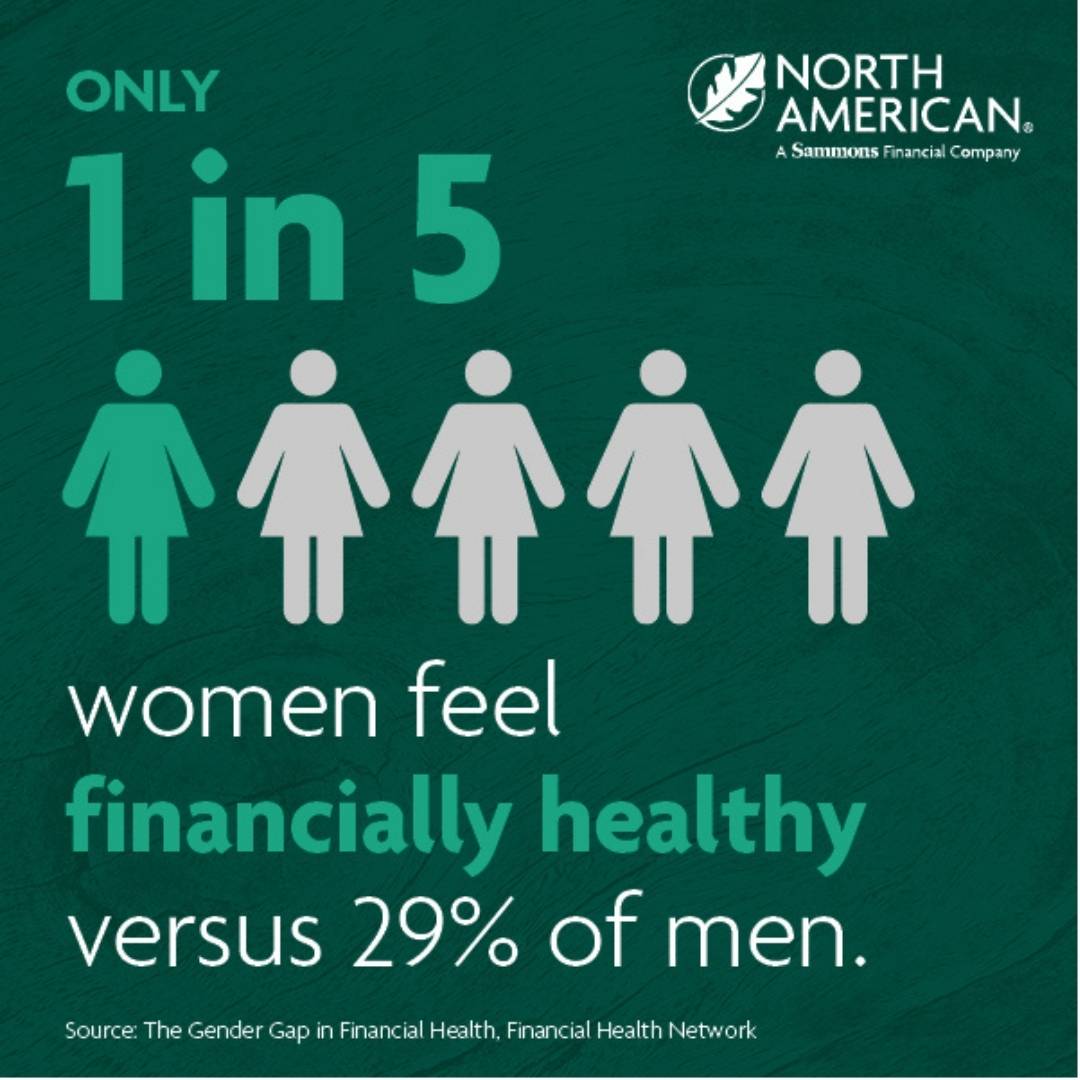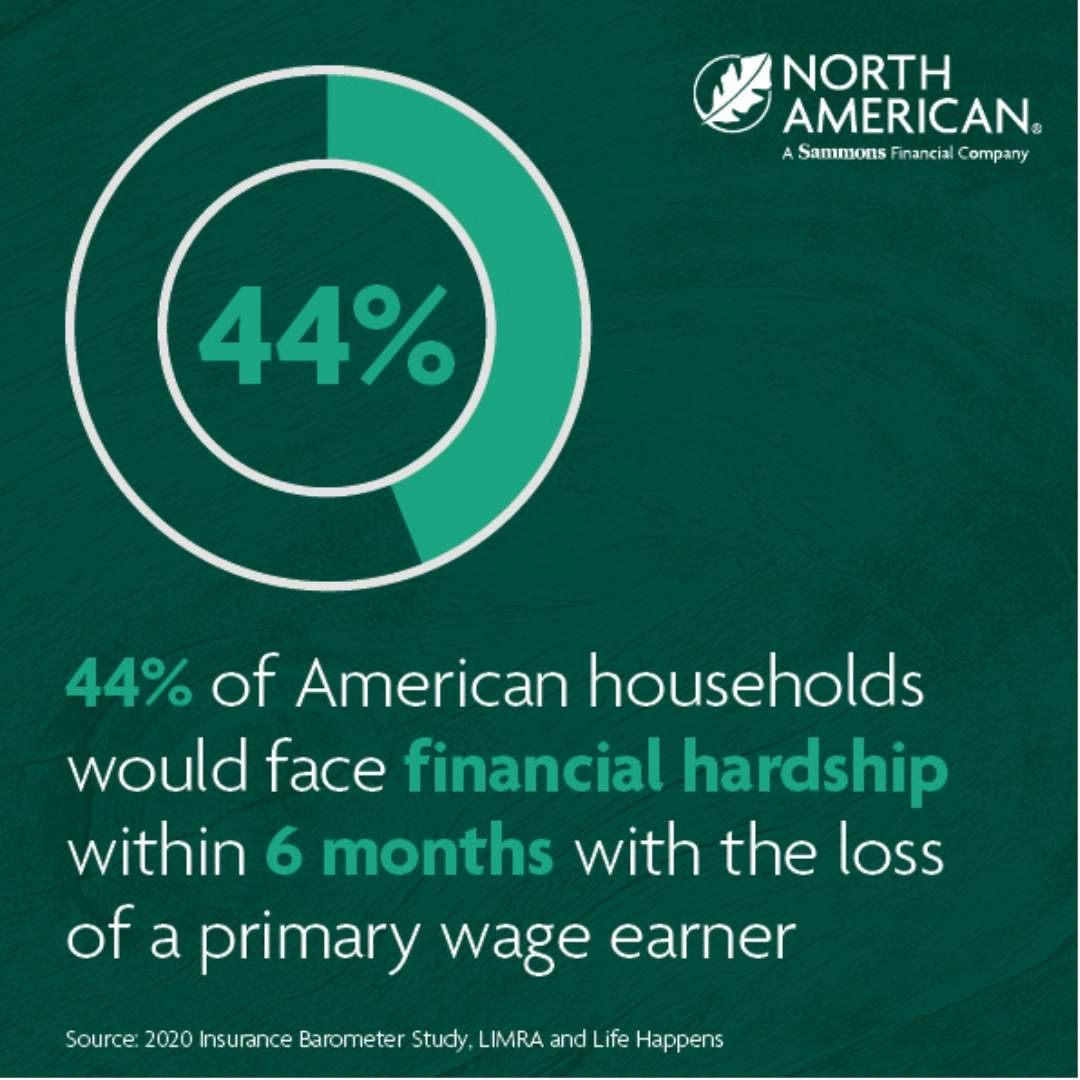
Five ways women can become financially empowered
Feb 6, 2025, 4:43:19 PM | Reading Time: 6 minutesWomen have a long history of facing gender-related financial challenges, from income inequality to limited employer support when caring for their children or aging parents. The gender gap has also caused many women to have saved less for the future than men. They may not feel financially empowered to be an active participant in managing their household’s finances. Despite these challenges, women are becoming leaders in their careers, raising families, and becoming significant contributors to their families. With only one in five women feeling financially healthy versus 29% of men1, it’s time more women felt financially empowered. Here are five steps to improve your financial health and better prepare for your future.
 Start a money conversation
Start a money conversation
While discussing money with a partner or loved one isn’t always easy, it’s a meaningful way to ensure you’re on the same page financially and are collaboratively working toward your goals. Open communication lets you identify issues early or find opportunities to bump up savings. Your household finances should be a joint responsibility, and when you create a plan together, you’re more likely to support each other in accomplishing your set goals. To help start a money conversation, begin by asking yourself and your partner:
- Is our budget still in line with our financial situation?
- Do you have any financial concerns?
- Is paying off debt a priority?
- How would you describe your spending habits?
- Are we on track with our long-term financial goals?
- Is there any extra we can put toward savings?
Create a safe space for sharing any concerns or financial topics you’ve been exploring. While in the past many women felt less confident participating in their family’s finances, a growing number are taking a more active role. Find opportunities to discuss and research financial solutions together, seek professional advice, and push yourself to expand your knowledge into new territories.
 Help protect loved ones with life insurance
Help protect loved ones with life insurance
You may have life insurance through your employer, which can offer an excellent financial foundation, but it may not be enough to cover all of your family’s needs. Following the loss of a primary wage earner, 44% of households say they would face financial hardship within six months.2 Having adequate life insurance coverage can be essential to lessening the financial burden on your loved ones and allowing them to meet their day-to-day obligations without going into debt.

Research shows that women are less likely than men to have life insurance, with common reasons including thinking it’s too expensive, having other financial priorities, and feeling unsure about the correct amount of coverage.3 Whether you’re single or married, a business owner or stay-at-home mom, or perhaps a primary caregiver, ensuring your family is protected can help you feel more financially secure. Life insurance benefits not only can help with final expenses, but they can assist with child or elder care, pay off medical expenses, help with the rent or mortgage, or put money toward your children’s education.
 Create steady retirement income
Create steady retirement income
According to the U.S. Census Bureau, women earn an average of 84% of what men earn in income, and because of this, they typically have much less in savings.4 Only 44% of working-age women5 say they are confident they will have enough money to live off of in retirement. Women need to begin saving for retirement as soon as possible and create a holistic plan to help address their unique needs and goals for the future.

Life expectancy has increased in recent decades, where women live longer than men — 79 and 73, respectively.6 That is a substantially longer time spent in retirement, and women will need a solid income plan to ensure their savings will last as long as they do. Supplementing a retirement income plan with an annuity can be a helpful way to add guaranteed monthly income to your retirement. A fixed annuity can allow you to grow your savings at a fixed interest rate. Alternatively, you may choose a fixed index annuity (FIA) to offer more significant growth potential with protection from downside market risk. In addition, many FIAs can provide a guaranteed lifetime income option where you would receive a monthly payment for the rest of your life.
 Build an emergency fund
Build an emergency fund
To save for a rainy day and help minimize the financial stress of an emergency, women should allocate money to an emergency fund every month. Even if it’s a small amount of your income, building up a cash reserve can put you in much better financial standing if you have unexpected medical bills, car or house repairs, or suddenly face a job change or loss of income. Creating a financial safety net to fall back on can help you avoid increasing credit card debt or needing to ask family members for a loan.
 Find a go-to financial resource
Find a go-to financial resource
Seeking financial empowerment and becoming more knowledgeable in your money affairs doesn’t have to be a solo journey. Finding a trusted financial professional can help make financial planning more rewarding by assisting you as you identify your short- and long-term goals, explore new topics and saving strategies, and determine how annuities and life insurance can strengthen your financial portfolio. The more knowledge you gain, the more confident you can feel in financial decision-making and creating a more secure and fulfilling future.
B4-NA-8-23
1 Meghan Greene, The Gender Gap in Financial Health, July 2022. https://finhealthnetwork.org/research/gender-gap-in-financial-health/
2 LIMRA and Life Happens, 2022 Insurance Barometer Study Reveals the Secrets to Financial Security is Owning Life Insurance, April 2022. https://www.limra.com/en/newsroom/news-releases/2022/2022-insurance-barometer-study-reveals-the-secret-to-financial-security-is--owning-life-insurance/
3 LIMRA, Helping Women Prioritize Life Insurance, March 2023. https://www.limra.com/en/newsroom/industry-trends/2023/helping-women-prioritize-life-insurance/#:~:text=According%20to%20LIMRA's%20Insurance%20Barometer,of%20women's%20life%20insurance%20ownership.
4 Carolina Aragao, Gender pay gap in U.S. hasn’t changed much in two decades, March 2023. https://www.pewresearch.org/short-reads/2023/03/01/gender-pay-gap-facts/#:~:text=In%202021%2C%20full%2Dtime%2C,occupational%20segregation%20and%20work%20experience.
5 Craig Copeland, Ph.D, The Perfect Storm – Factors Contributing to Lower Retirement Confidence Among Women Who Are Not Married, September, 2022. https://www.ebri.org/docs/default-source/pbriefs/ebri_ib_567_rcswomen-1sept22.pdf?sfvrsn=82bf382f_4
6 National Center for Healthy Statistics, Life Expectancy in the U.S. Dropped for the Second Year in a Row in 2021, August, 2022.
The term financial professional is not intended to imply engagement in an advisory business in which compensation is not related to sales. Financial professionals that are insurance licensed will be paid a commission on the sale of an insurance product.
